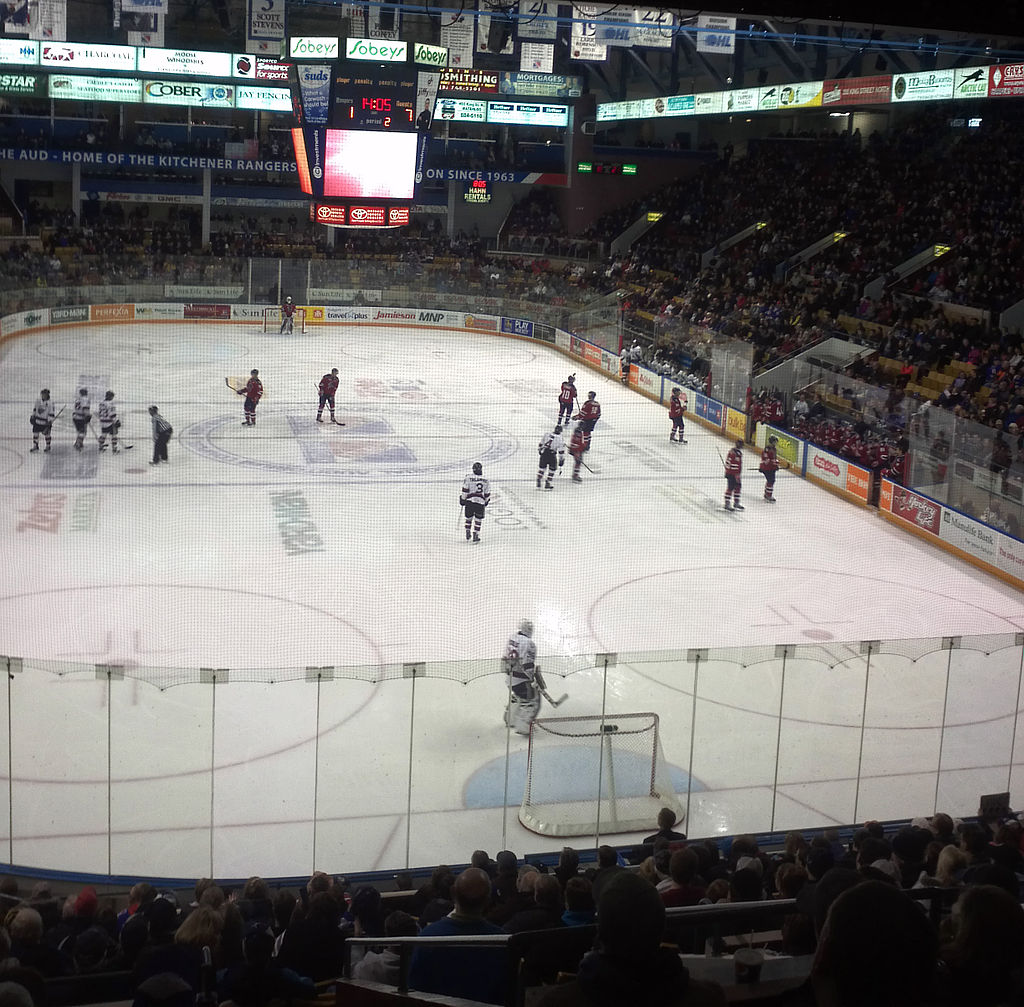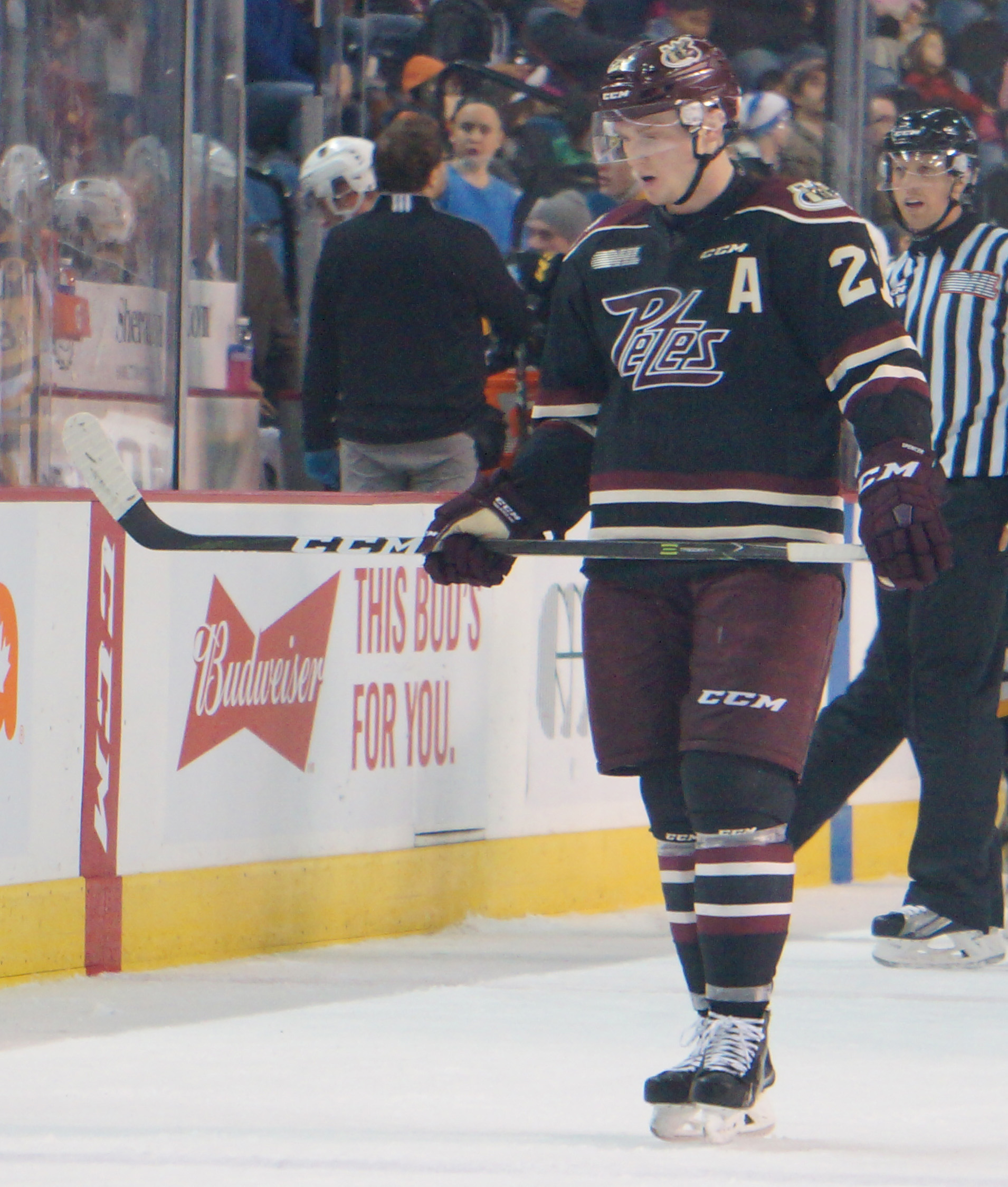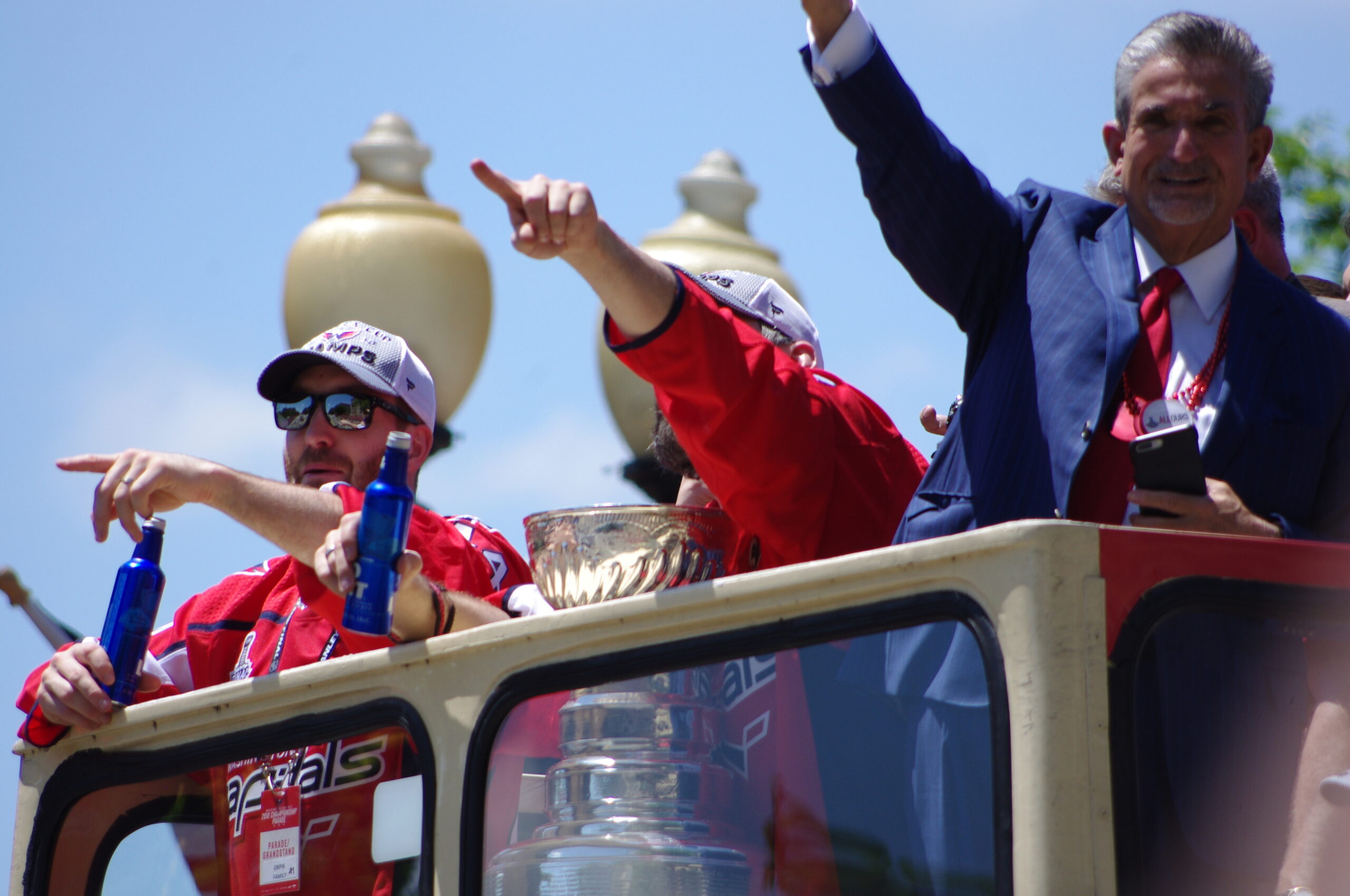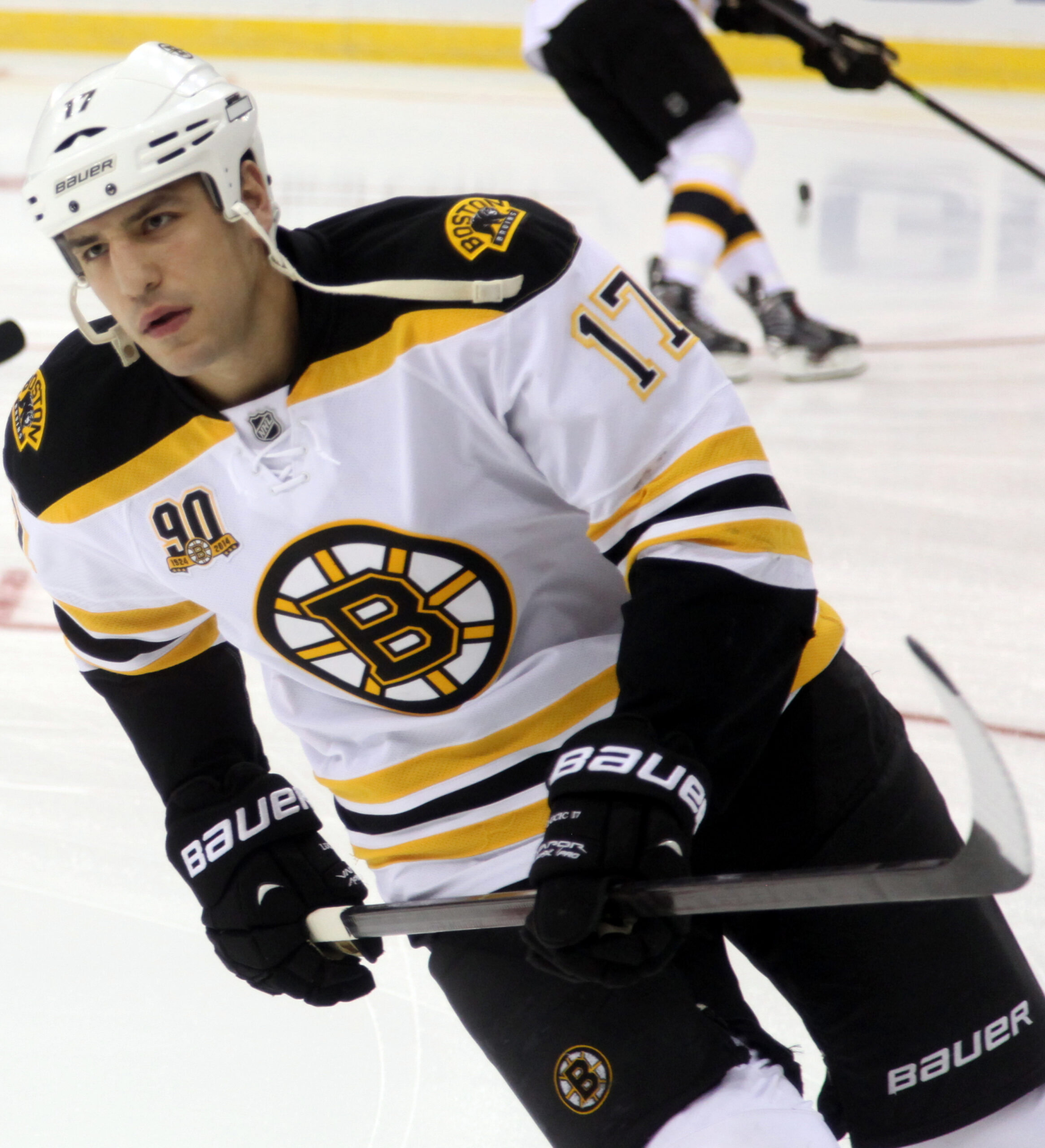By Alec Roberson
School of hard knocks or hockey abuse? As quickly as one problem has dissipated for the Canadian Hockey League (“CHL”) another has arisen. A few months ago, the CHL, its three leagues, and its Canadian member teams settled a class action lawsuit with former players seeking to be recognized as employees. If you have not had a chance yet, check out our article on that settlement here. This ended what was around six years of litigation against the CHL. Now they staring down the barrel of hockey related abuse allegations and another class action lawsuit.
The Chain Reaction of Hockey Abuse Allegations
The CHL started 2020 facing the financial effects of the employment lawsuit settlement and COVID-19. Well if that wasn’t already enough, Eric Guest, a former player with the Kitchner Rangers of the Ontario Hockey League (“OHL”), released a video on Instagram in June of 2020 with disturbing allegations. Guest alleged that some older players forced him to use cocaine during a non-sanctioned Rangers’ team party. The OHL quickly launched an investigation into those allegations. Likewise, the Waterloo, Ontario police department opened a criminal investigation into these hockey related abuse allegations.
Only two days after Guest released his video, former CHL and NHL players Daniel Carcillo and Garrett Taylor filed a class action lawsuit in Ontario against the CHL, its leagues, and all of its member teams for hockey related abuse. In that suit they alleged that junior players were “routinely victims to hazing, bullying, physical and verbal harassment, physical assault, sexual harassment, and sexual assault.” And if that wasn’t enough, a former player filed a complaint against the Western Hockey League (“WHL”) alleging that he was sexually abused while playing for two teams. That player wished for all parties involved to be kept anonymous.
Eric Guest Alleges He Was Forced to Use Cocaine
Guest was a member of the Kitchener Rangers of the OHL from 2016 to 2019. Per Guest’s Instagram video, he attended a non-Rangers sanctioned team party when he was 16 years old. It was the first team party of the season and happened shortly after Guest first came to Kitchener. From the sounds of it, this party was nothing short of your normal teenage party. However, from there things seemed to take a turn. Specifically, an older player forced Guest and another younger player into a bathroom and told them they would not be let out unless they used cocaine.
The shock of a 16 year old being pressured to use illegal drugs is bad enough. The fact that Guest felt like he had to comply with that pressure is equally concerning. Guest specifically stated, “When you’re young in that league…you listen to what the older guys tell you. You don’t really have a voice. You don’t fight back. They have power. They rule you.” Guest further was quoted as saying “You can’t go to your coaches, your Gms and say this stuff is happening in the locker room……[T]hey just don’t know about it. But this kind of stuff happens.”
Who is Responsible?
From a liability standpoint, can team representatives simply plead ignorance to this abuse in junior hockey? Legal liability likely depends on the facts and circumstances but there is at least the risk. The class action lawsuit mentioned above involves just that. We will analyze some of the legal arguments related to liability when we cover that lawsuit in a future article. Stay tuned….
The Coaches Speak Out
Focusing on fixing the issue, setting up policies and procedures may not be enough without a shift in culture. Even in an organization as well run as the Kitchener Rangers, we see problems can still arise. Guest’s feelings that he he could not speak about these incidents hit Jay McKee and Mathew Barnaby (respectively the head and an assistant coach with the Rangers during the 2016-17 season) blindsided. Both McKee and Barnaby stated that the Rangers had an open door policy with approachable staff. They reiterated that all of the staff made a strong effort to reinforce that policy. This included the coaches proactively reaching out to these young players to make sure they were alright.
Jay McKee when playing for the Pittsburgh Penguins
By Michael Miller / CC BY-SA (https://creativecommons.org/licenses/by-sa/3.0)
Even with all of that in place, none of Guest’s coaches knew of the situation. Baranaby stated that he saw no indications that these actions were happening. He emphasized the Rangers’ open-door policy and stated that their hockey club would not have tolerated such behavior had someone known. With all of that said….it still happened and Guest remained silent. There is no reason to doubt that the Rangers did have such policies in place as mentioned above. But this is what is so concerning. And as we can see by the class action lawsuit and the allegations against WHL teams, Guest is not alone. Where does the problem lie? Is it hockey? Junior hockey? The CHL? The Kitchner Rangers? Teenage boys away from home? It’s difficult to actually make a pinpoint assessment but somehow it should change.
The CHL’s Response
Following Guest’s video, the OHL launched an investigation into his abuse allegations. In similar fashion, the WHL launched an investigation into the allegations mentioned above. The CHL and its member leagues have a zero-tolerance policy when it comes to hazing, abuse, harassment and bullying. The CHL has maintained that it is “Player-First” when it comes to the playing environment for its players. Partnering with organizations such as the Canadian Mental Health Association, Canadian Red Cross, and Respect in Sport, the CHL has worked for 20 years to develop and maintain policies and procedures to educate its members and prevent hockey related abuse such as this from taking place. The CHL does not tolerate any type of violation of these policies. Even though the CHL believes instances such as those in Guest’s allegations do not represent the experience of most players in the league, it nonetheless launched an investigation.
It is important to remember that violations of these policies could lead to CHL sanctioned punishment for teams, coaches, or players but will not directly lead to any criminal charges or personal liability outside of the league. As of late August, 2020, the OHL has closed the investigation as Guest did not respond to the league’s questions necessary to maintain the investigation. As far as we can tell the WHL investigation is still ongoing.
The CHL’s Independent Review Panel
Following these allegations and the class action lawsuit, the CHL appointed an Independent Review Panel to review the CHL’s current policies, procedures and actions on hazing and abuse in hockey. The goal is to have the review completed prior to the 2020-2021 season.
Camille Thériault, the former Premier of New Brunswick, an Officer of the Order of Canada and the former chair of the Transportation Safety Board of Canada (TSB), Sheldon Kennedy a former CHL and NHL player who has had significant involvement in promoting awareness of these issues, and Danièle Sauvageau, who has had extensive experience in investigation, public safety, high level sport, business and sports coaching comprise the review panel. This is an important step the CHL has taken to have neutral oversight on its policies and procedures. What will be interesting to see is not only what the committee finds, but how their findings will be used to enhance the CHL and may affect the class action lawsuit.
Criminal Investigation
In addition to the OHL’s investigation, the Kitchner Rangers reached out to the Waterloo, Ontario police department to criminally investigate these hockey related abuse allegations. While Guest may be able to receive damages from such abuse if he were to sue the perpetrators civilly, a criminal investigation concerns the province and could lead to jail time or significant fines.
Typically, in the world of sports, the government prefers not to get involved and lets the parties handle their disputes and controversies amongst themselves. This makes sense when a player violates a league rule such as using performance enhancing drugs that otherwise would be perfectly legal. But forcing any individual, especially a minor, to use illegal drugs is easily enough for the government to get involved. This is simply a reality that players, teams and leagues need to be aware of.
Much like the hazing issues we see in college fraternities, at some point there has to be a limit. Some harmless jokes and initiations that present a rite of passage for young players is one thing. Illegal drugs brings this to another level. For coaches and team executives to simply turn a blind eye may not only be irresponsible, but may implicate those individuals with liability as well. The specific facts of the situation and the extent to which coaches or representatives of the team actually are aware, or SHOULD be aware, may affect that outcome. In any event, everyone involved needs to take these matters seriously due to criminal liability as well. In Guest’s case, he decided to hold off on the criminal investigation. Honoring his wishes, the Waterloo police department closed the investigation.
Is it worth it?
There is likely a balancing act between the likelihood of the player turning pro in hockey and the severity of the abuse. For example, a better player could likely still make turn pro even if he spoke out on the actions or refused to partake. The better players may be more “protected” by the teams and others involved. The unfortunate truth is that it seems the overlooked players may be the ones most susceptible to such actions. But these players are not commodities. They are human beings. And while it is a shame that Guest felt like this, other questions must be considered. What implications on junior hockey and its member teams could statements like this lead to? And what has transpired over time that has developed such a feeling among young players, whether truthful or not?

An example that comes to mind is former black OHL player Akim Aliu. During his rookie year with the Windsor Spitfires, Aliu vocalized his feelings about rookie hazing and the “rite of passage.” Aliu refused to partake in certain rookie activities. Consequently, many veteran players took issue with him because of this. Eventually, the Spitfires traded Aliu to the Sudbury Wolves. This incident (among others) cast a skeptical shadow over Aliu, an otherwise highly touted prospect, his whole career. He was a second round draft pick who has only totaled seven games in the NHL.
Akim Aliu, By Resolute / CC BY-SA
(https://creativecommons.org/licenses/by-sa/3.0)
Could Abuse in Hockey have Long Term Effects on Participation?
At some point parents (and possibly young players themselves) may deem the risk of the damages from experiencing this type of abuse not being worth playing with such a remote chance of turning pro. Statistics have shown that only roughly five percent of players in the CHL and NCAA make it to the NHL. Five percent….and this is the likelihood coming from the highest level of amateur hockey. Guest has stated that following his time in Kitchener he has suffered from mental health issues including depression and suicidal thoughts as well as substance abuse. The complainant against the WHL mentioned above shared similar mental and substance abuse struggles. There is no reason to think they are alone in this. Already with risks of long term physical injuries from playing hockey, the risk of long term emotional and mental damage may be just as bad or even worse.
Conclusion
Through his public allegations, Guest seems to focus on righting an overall unfortunate situation and less concerned with victimizing certain individuals or the sport itself. He did not pursue the criminal investigation or the OHL’s investigation while most would agree there was reason to. Guest specifically said “I’m not doing this to make anything negative or trash anything about hockey or any place I played,”…. “It’s strictly to just shed light on things that happened in the hockey world and that happened in my life.” In fact, Guest continued to play hockey for the Jr. B London Nationals after these incidents and excelled as a leader on that team.
While Guest was less aggressive in his allegations and ultimate goal than Carcillo and Garrett were in their lawsuit, it seems only logical that Guest going public has tipped a domino. Even if the lawsuit loses, the combination of these actions lead to a greater awareness of these issues that may otherwise be overlooked or ignored. What this situation has shown is that no one is immune and changes are in store. Hockey is a sport, a game, played by humans that many love. It is fair to work hard to prove yourself but no one should feel pressured into comprising their own morality, or emotional and mental well being while doing so.
Post image attribution: By: Farkmcgeezax / CC BY-SA (https://creativecommons.org/licenses/by-sa/3.0)




